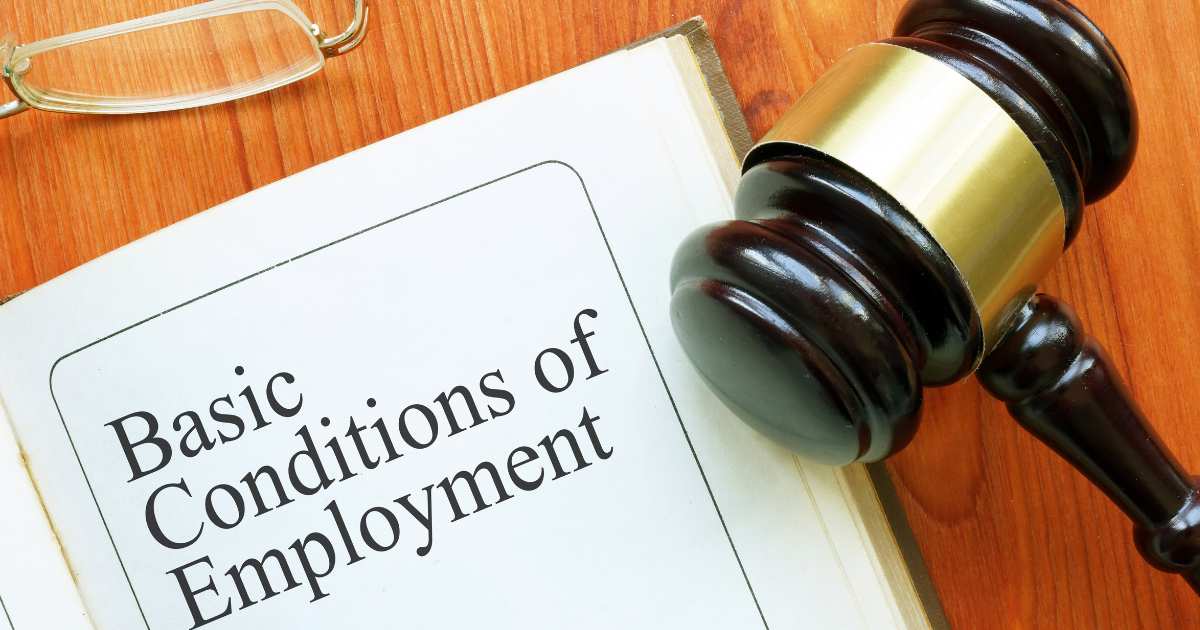So, you’ve been running your business and it’s going so well, now is the time to hire employees. Having the finances to hire employees showcases that your business is growing and you’re on the right path. To make sure your employees are happy, you need to know the basic conditions of employment.
Before you get some employees, you need to understand South African labour laws. The Basic Conditions of Employment Act (BCEA) governs the basic rights of all employees. These rights are to be applied to all places of work.
The BCEA gives regulations around how you should treat your employees and ensures that fairness and safety is present in all places of work.
In this article, we give you a summary of the basic conditions of employment. It will help ensure you follow the law and treat your employees well, so they perform better.
Working Hours
According to the BCEA, there are regulations around how many hours your employees need to work. In summary:
- Employees are not supposed to work more than 45 hours a week.
- Employees must work (at least) 9 hours a day if they work less than 5 days a week.
- Employees must work (at least) 8 hours a day if they work more than 5 hours a week.
Overtime
When it comes to overtime, there are different laws around it outside of the working hours laws. The overtime regulations state:
- Overtime work must be an agreement between employee and employer.
- An employee may not work for more than 12 hours a day, or 10 hours overtime a week.
- To increase the overtime to 15 hours a week, your employer must agree. The increase can only be done for up to two months a year.
Night Work
Night work is when an employee must work between the hours of 18:00 and 06:00. The BCEA states that when it comes to overtime, you must:
- As the employer, you must provide transport for nighttime workers.
- If your employee is set to work at night, you must inform them of any health and safety risks.
- If the night work presents health or safety risks, your employee has a right to be moved to a day shift.
- If an employee must do night work in risky conditions, they are entitled to regular medical check-ups.
Break and Rest Periods
According to the BCEA, there are certain times that dictate when an employee may take a break. These include:
- Your employees must have a meal break of one hour after 5 hours of work.
- Only a written agreement between you and the employee may lower the break to 30 minutes (if an employee works less than 6 hours a day).
- Your employees have a right to a daily rest period of 12 continuous hours and a weekly rest period of 36 hours.
- All rest periods include Sundays.
- If an employee works on Sundays, they are entitled to double pay. If they normally work on Sundays, they are due one-and-a-half times the normal wage.
Leave
The BCEA outlines that your employees are entitled to the following when it concerns leave days. These include:
- Your employees can take up to 21 continuous days of annual leave (by agreement).
- Your employees are also allowed to take one day for every 17 days worked or one hour for every 17 hours worked.
- Employee leave must be taken no later than six months after the end of the annual leave period. Employees are entitled to pay for any leave outstanding when they leave the job.
- Your employees can take up to six weeks of paid sick leave during a 36-month period.
- During the first six months of starting a job, employees can take one day’s paid sick leave for every 26 days worked.
- For maternity leave, a pregnant employee can take up to four continuous months of maternity leave.
- Maternity leave can be started anytime from four weeks before the due date.
- No employee may work for six weeks after the birth of the child unless certified by a medical professional.
- Parental leave is time off for parents or caregivers. Employees are entitled to 10 consecutive unpaid paternity leave.
- The parental leave right is also applicable to employees who adopt a child under 2 years.
- Employees who have worked for more than four months are entitled to three days of paid family responsibility leave.
Minimum Wage
The minimum wage is the lowest amount of money you can pay an employee. The South African minimum wage is R 27,58 per hour. In terms of the BCEA, your employees must be paid the following:
- All salaries are paid in ZAR.
- Employees must be paid daily, weekly, every two weeks, or monthly.
- All employees must be paid in cash with a cheque or direct deposit.
- All employees must be sent their payslips.
Note: An employer may not deduct pay from an employee unless agreed in writing, and the deduction is required by law.
Termination of Employment
When an employee’s time at your company is finished, under the BCEA you must receive notice from them, and you must provide them with the notice within:
- 1 week, if employed for less than 6 months.
- 2 weeks, if employed for 6 months to a year.
- 4 weeks, if employed for 1 year or more.
These are just some of the things you must remember when you start hiring people for your company.
For more information on labour laws, explore our Guide to Labour Law.





















Discussion about this post